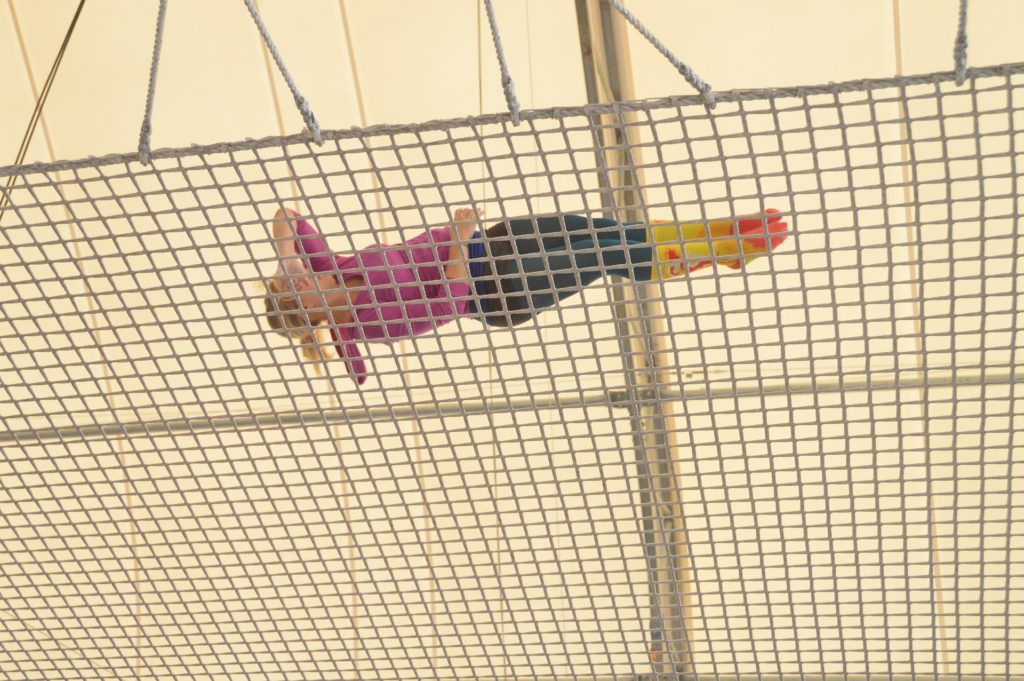
Several years ago, my family and I were exploring the Navy Yard Park in DC when we happened upon a tall, warehouse-looking building with big doors wide open to the street. The applause and laughter emanating from inside lured us. As we stepped out of the bright sunlight and our eyes adjusted, I looked up and my jaw fell. Above my head, ordinary people in leggings and t-shirts swung back and forth above a giant net. We had walked into a trapeze school!
Sometimes freelancing feels like trapeze school. We swing back and forth between clients and assignments, sometimes flying high and sometimes just barely holding on. And occasionally something happens, and we must let go for a while. As much as we might want to work, we can’t because of Illness, injury, natural disaster, emergency, or the need to care for a loved one. While we all try to build our own safety nets under us with savings and insurance and fallback plans, sometimes that’s not enough to get us through.
And that’s where the Writers Emergency Assistance Fund comes in. WEAF was created to support professional writers who have to let go of the freelance trapeze for a bit, or who need a little extra help to deal with an emergency situation.
In 2022, WEAF will celebrate its 40th anniversary. Since its inception, WEAF has given nearly 300 awards totaling more than $685,000. While the awards are small—usually no more than $2500—they make a big impact.
They can even save lives: A recent award went to a West African writer who faces persecution in his home country for making his LGBT+ identity part of his public work. ASJA was approached by City of Asylum/Detroit, an organization providing sanctuary to writers-in-exile, which was working to secure a visa to bring this writer to safety. WEAF funds have helped move the writer to a safe location in his home country while his visa was approved.
2021 has been a hard year for so many.
In some ways, freelance writers have fared better during the pandemic than people with fulltime jobs. We could keep the assignments flowing by juggling clients and shifting focuses. And we’ve got this remote working thing down to a science. I’ve heard some writers have had their best years ever during the pandemic.
But other freelancers are struggling with fires in the West, hurricanes in the South, or serious illness, including COVID-19 and long COVID, that can make working impossible. If this describes you, please consider applying for a grant.
If you are on the upswing professionally or even just coasting clear for now, please think of making a tax-deductible donation to WEAF. Even small donations can help patch the holes in the safety net and help our fellow writers through tough times.

